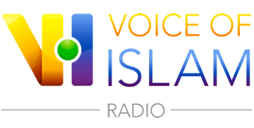Vaccine hesitancy
The World Health Organization (WHO) regards vaccine hesitancy as one of the biggest threats to global health1. So, when a colleague first told me that she would not be getting the Covid-19 vaccine, I was slightly taken aback. How can someone put other’s lives at risk after knowing that vaccines have successfully decreased transmission rates and hospitalisations? Is showing hesitancy or refusing to get the Covid jab a selfish act? With the spread of new variants on the rise, surely, everyone who has a vaccine available to them, should get it without a moment of hesitation to guarantee herd immunity and protection for the vulnerable.
However, for many people, getting vaccinated is not a black and white decision and being told they must comply may be seen as an attack on liberty. Consequently, vaccination rates within some groups of people are lower than others such as young people, people identifying as Muslim and BAME populations2. Although sentiments against the covid vaccines are largely positive, it is vital to study whether the current scale of vaccine hesitancy is more harmful than we realise.
What is vaccine hesitancy?
The Scientific Advisory Group on Emergencies (SAGE) defines vaccination hesitancy as the delay in acceptance or refusal of vaccination despite vaccine services being available3. The reasons for this are extensive and vary in complexity. Some of the key factors have been collated under the WHO’s 3Cs model of complacency, convenience, and confidence1.
- Individuals displaying complacency usually deem vaccinations as an unnecessary action due to a low perceived risk of catching COVID or getting seriously ill from it. This false sense of security meant certain risks are not stressed.
- The matter of vaccine convenience, especially in developed countries like the UK, has been of little issue. Due to vast governmental financial backing and support, there has been easy physical access to the vaccine with a pop-up vaccination centre almost everywhere you look.
- However, perhaps the most recognisable and challenging issue is low confidence levels in the effectiveness and safety of the vaccine or the bodies that deliver them. The causes behind this are multidimensional, which I will further explore.
Why are people reluctant to get the jab?
One of the reasons why there is unwillingness is due to the speed at which the vaccine was developed and certified for public use. Most vaccination trials can last over 10 years so how did this take less than a year? The reality is that other forms of the coronavirus have been around for decades, so scientists were not starting from scratch as they already had a vast understanding of how the virus works and what vaccines would likely be effective. For example, using flexible mRNA technology instead of conventional vaccines enabled researchers to swiftly process and adapt new experimental vaccines4. Likewise, the level of funding and international cooperation into research, development, manufacturing and roll-out has been unprecedented. This monumental international effort to find a vaccine is one that has never been seen before without cutting corners on testing and safety. As a result, innovative trials were able to go ahead and to avoid delay, manufacturing started even before some vaccines were deemed significantly effective!
However, coming from a scientific background, I can confidently state I trust the vaccines because I have a fairly clear understanding of the different designs and the efficacy displayed in clinical trials. But we are not all scientific experts or are familiar with terms such as ‘efficacy’ or ‘mRNA technology’ so understanding the importance of tailoring public health messages is a key step in tackling scepticism around the Covid-19 vaccines.
Additionally, in a climate of heightened uncertainty and constantly changing COVID guidelines, it can be hard to follow accurate, trusted sources of information. And despite successful NHS and governmental campaigns to tackle a sea of conspiracies and misinformation surrounding the Covid-19 vaccine, it has been difficult to discriminate fact from fiction. Myths stirred up by anti-vaccine groups describing vaccines as harmful or causing common adverse side effects are far from the truth. Lack of inspections also means media giants have ignited this false rhetoric, creating a sense of fear and mistrust. This information in the hands of people who are genuinely undecided about their choice may further negatively skew their perceptions as they fill in gaps in their knowledge with biased information conveniently read on a social media post rather than from health experts.
Tackling vaccine hesitancy
From an Islamic point of view, we must strive to be truthful. Chapter 2, verse 43 of The Holy Quran states,
“And confound not truth with falsehood nor hide the truth, knowingly.”5
I would argue there is nothing wrong with questioning scientific methods being open to researching new information. Islam itself encourages gaining knowledge6. However, we should seek out only the truth and also do our part to hinder the spread of false information. Although there is no easy solution, engaging in an open dialogue, being respectful of other people’s concerns and communicating effectively are some ways in which we would be able to successfully decrease vaccine hesitancy in people from all walks of life.
The Holy Prophet Muhammad, may the peace and blessings of God be upon him, has stated that ‘There is no disease that Allah has created except that he has also created its treatment’ so rejecting the vaccine is rejecting the divine manifestations sent by God7. The preservation of life, which is facilitated by the effectiveness of the Covid-19 vaccines is a core principle in Islam so, as Muslims, it is our moral duty that for the safety of ourselves and others that we seek treatment and protection. Vaccine hesitancy remains a significant concern so we must work together to encourage people to be more accepting.
References:
- World Health Organization. Ten threats to global health in 2019
- Office for National Statistics. Coronavirus and vaccine hesitancy, Great Britain: 26 May to 20 June 2021
- MacDonald NE; SAGE Working Group on Vaccine Hesitancy. Vaccine hesitancy: Definition, scope and determinants. Vaccine. 2015 Aug 14;33(34):4161-4.
- Pfizer. Behind the science, what is an mRNA vaccine?
- The Holy Quran
- Al Islam. Increase your knowledge.
- Hadrat Mirza Ghulam Ahmad (1902). Noah’s Ark: An Invitation to Faith, Chapter 7 – The Plague Vaccine





